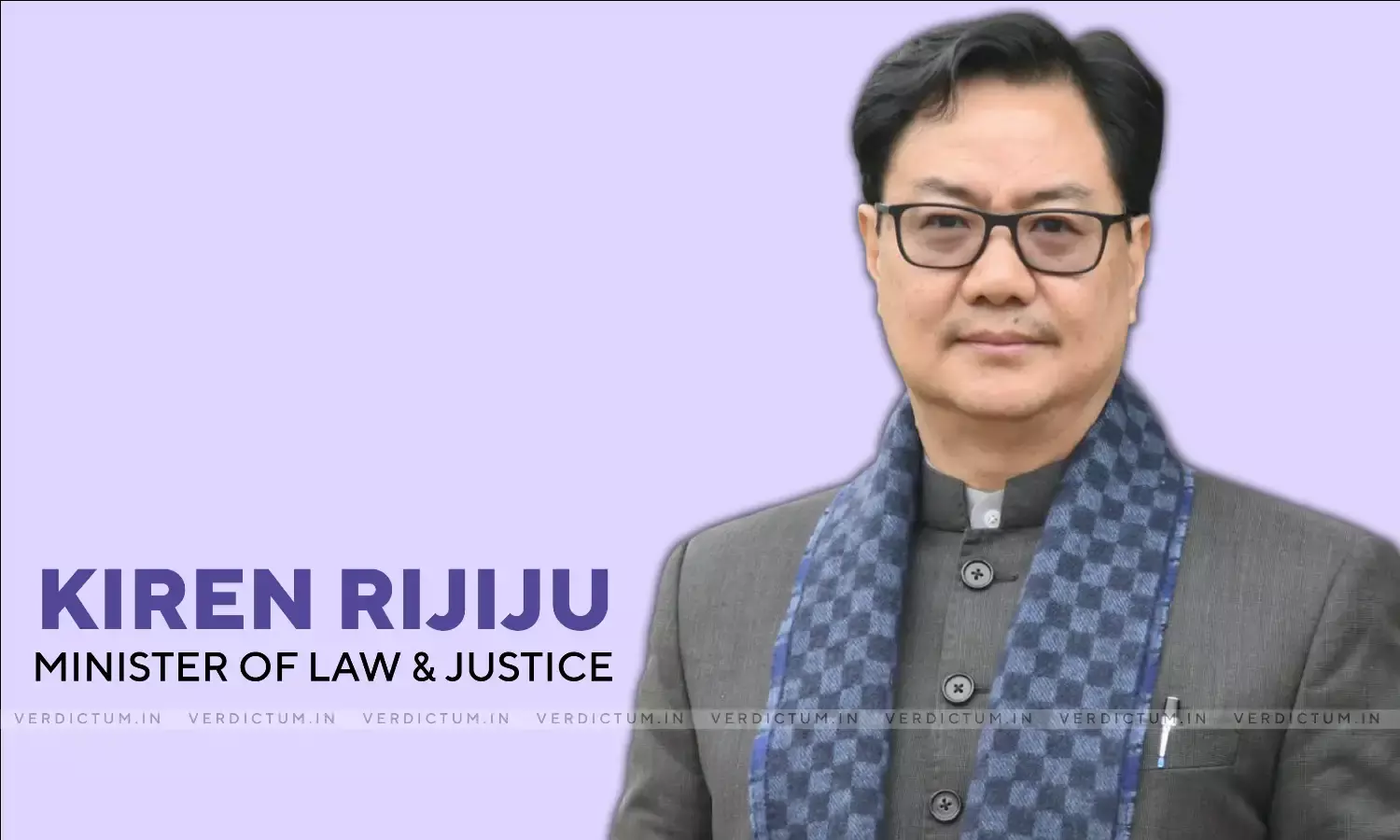Pendency Of Cases Is Not Only Due To Shortage Of Judges In HCs But Also Due To Other Factors: Law Minister
The Law Minister, Kiren Rijiju, has informed the Parliament that the pendency of cases in courts is not only because of shortage of judges but also because of various other factors such as increase in the number of state and central legislations, lack of adequate arrangement to monitor, tracking and bunching of cases for hearing, vacation period of Courts etc.
“The pendency of cases in courts is not only due to shortage of judges in High Courts but also due to various other factors like (i) increase in number of state and central legislations, (ii) accumulation of first appeals, (iii) continuation of ordinary civil jurisdiction in some of the High Courts, (iv) appeals against orders of quasi-judicial forums going to High Courts, (v) number of revisions/appeals, (vi) frequent adjournments, (vii) indiscriminate use of writ jurisdiction, (viii) lack of adequate arrangement to monitor, tracking and bunching of cases for hearing, (ix) vacation period of Courts, (x) assigning work of administrative nature to the Judges, etc.”, the Law Minister said.
This was in response to the question- whether the Government is aware that there has been delay in trial/hearing of several cases due to insufficient strength of judges in many High courts.
The Law Minister has also said that filling up of vacancies in the High Courts is a continuous, integrated and collaborative process requiring consultation and approval from various constitutional authorities, vacancies keep on arising on account of retirement, resignation or elevation of Judges.
He also informed that the sanctioned strength of Judges of the High Court has increased from 906 in (2014) to 1108 in (2022).
While answering the question on the Digitization of Courts, Kiren Rijiju informed that the Government has launched the eCourts Integrated Mission Mode Project in the country for computerization of District and subordinate courts.
He also said that eCourts project is being implemented in association with e-Committee Supreme Court of India and Department of Justice.
"Phase I of the project was implemented during 2011-2015. Phase II of the project started in 2015 under which 18,735 District & Subordinate courts have been computerised.", he said.
The Law Minister further informed that phase II of the project is nearing its completion and DPR for e-Courts Phase III has been finalized and approved by eCommittee, Supreme Court.
On the question of accessibility of Court complexes to persons with disabilities, the Minister said that the Centrally Sponsored Scheme for the development of infrastructure facilities for the Judiciary provides for construction of court buildings, residential units, lawyers' halls, toilet complexes and digital computer rooms for the convenience of lawyers and litigants.
He added that the funds are released to the States/UTs only when their project proposals mandatorily comply with disable-friendly norms/accessibility standards as laid down by CPWD/Department of Empowerment of Persons with Disabilities, Ministry of Social Justice and Empowerment.
On the query on increase in the number of women in the Courts, Kiren Rijiju replied that the Government has been requesting the Chief Justices of High Courts that while sending proposals for appointment of Judges, due consideration be given to suitable candidates belonging to Scheduled Castes, Scheduled Tribes, Other Backward Classes, Minorities and Women to ensure social diversity in appointment of Judges in High Courts.
"As per Memorandums of Procedure for Appointment of Judges to the Supreme Court and High Courts, initiation of proposal for appointment of Judges in the Supreme Court vests with the Chief Justice of India, while initiation of proposal for appointment of Judges in the High Courts vests with the Chief Justice of the concerned High Court. All the names recommended by High Court Collegium are sent with the views of the Government to the Supreme Court Collegium (SCC) for advice. However, the Government has been requesting the Chief Justices of High Courts that while sending proposals for appointment of Judges, due consideration be given to suitable candidates belonging to Scheduled Castes, Scheduled Tribes, Other Backward Classes, Minorities and Women to ensure social diversity in appointment of Judges in High Courts.", Kiren Rijiju said.




